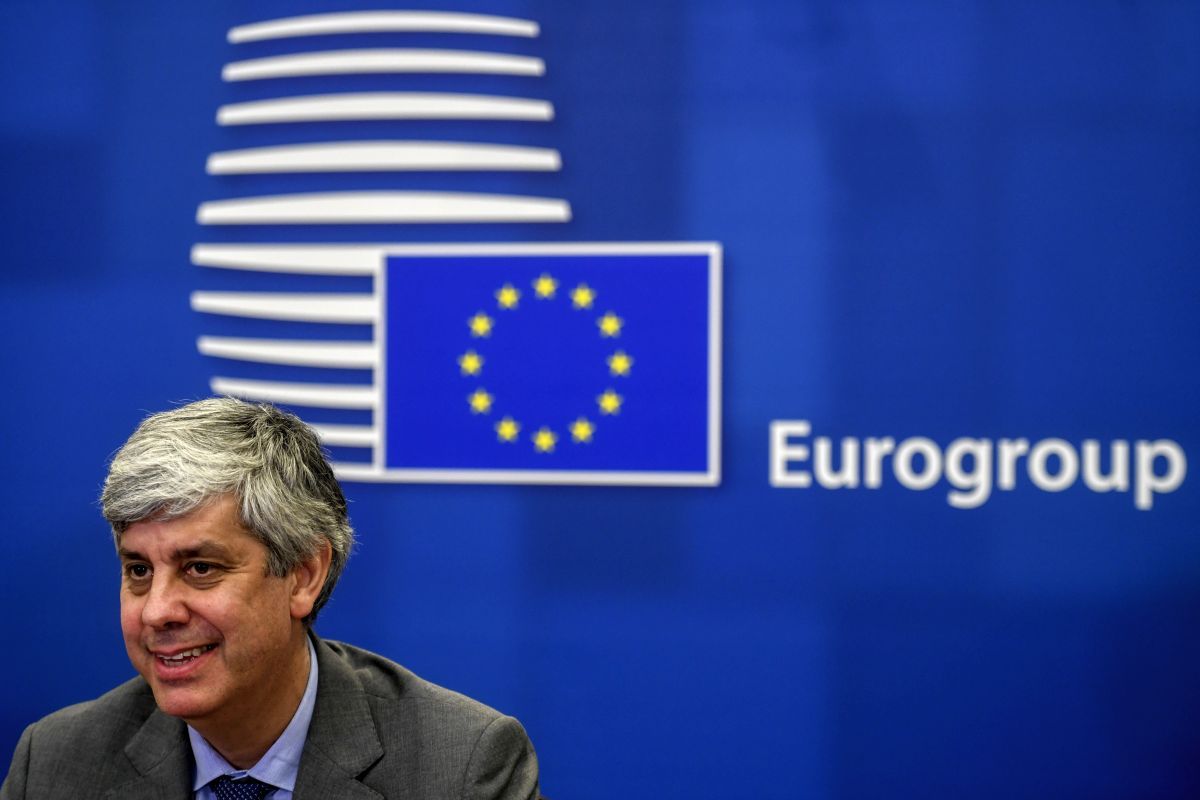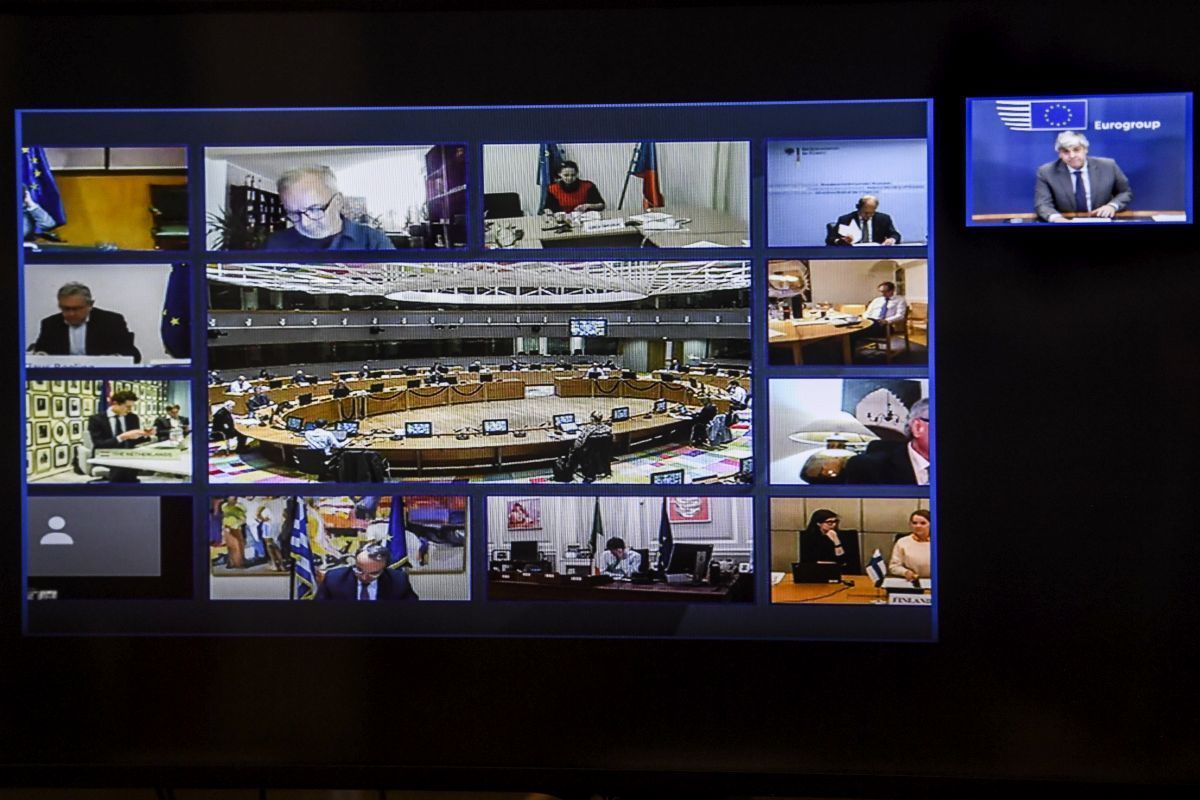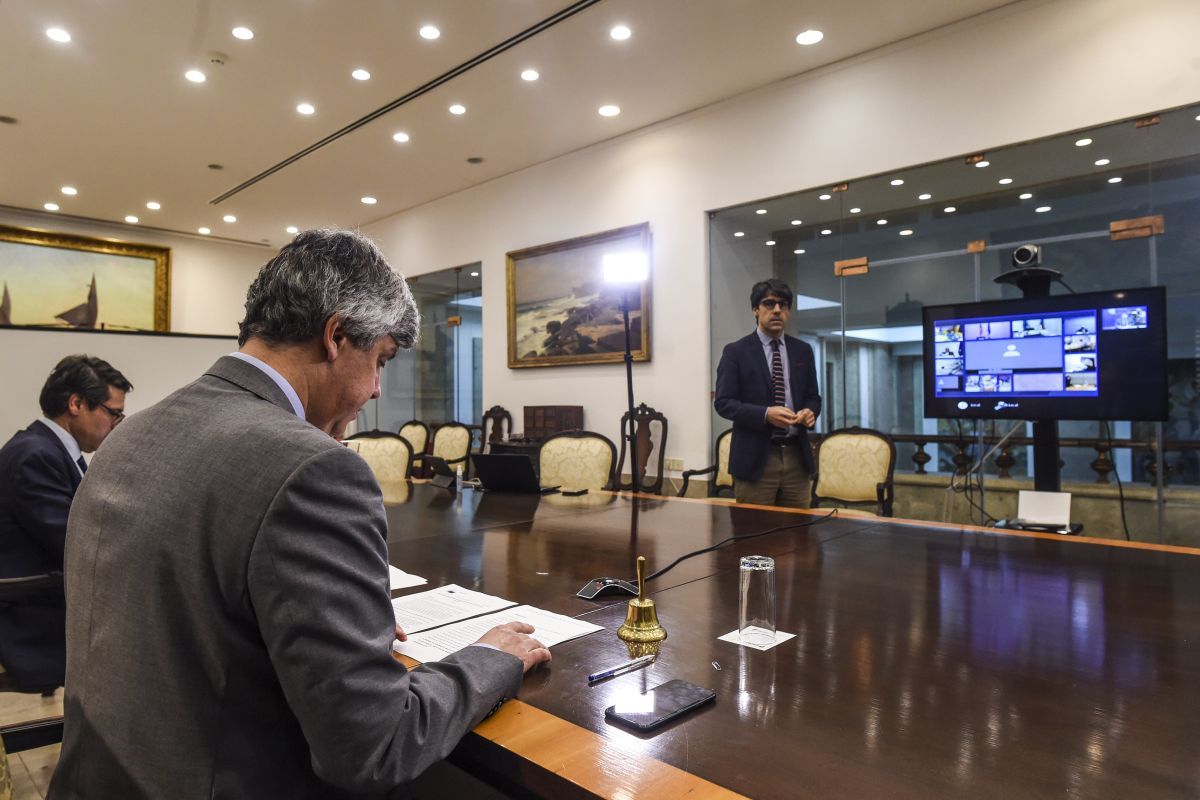Covid-19: Eurogroup Agrees on €500bn Rescue Plan for Workers, Businesses and Public Finances

Eurogroup President Mario Centeno.
EU finance ministers on late Thursday agreed on a 500-billion-euro (or some half-trillion euros) rescue package for member-states to deal with the effects of the coronavirus (Covid-19) pandemic.
“Today, we agreed upon three safety nets and a plan for the recovery, to ensure we grow together, not apart, once the virus is behind us. These proposals build on our collective financial strength and European solidarity,” Eurogroup President Mario Centeno following the Eurogroup video conference at the Portuguese Ministry of Finance in Lisbon.
Centeno underlined that the three safety nets – for workers, businesses and public finances – add up to half a trillion euros.
“We also had a first discussion on a proposal for a temporary recovery fund, which would turbo-charge the European investments that we will need to build a better, greener, more resilient and more digital economy,” he added.
The 3 safety nets

Eurogroup President Mario Centeno during video call at the Portuguese Ministry of Finance in Lisbon.
Workers and the self-employed
The EU’s workers and self-employed will be supported through the temporary European instrument to support national safety nets in the Covid-19 – what the European Commission has announced as ‘SURE’.
“This will put together our collective financial strength at the national and European levels, to channel up to 100 billion euros to the national systems facing the greatest pressures. This will now be taken forward and fine-tuned in the legislative process.”
Βusinesses
The second safety net is an initiative of the European Investment Bank (EIB) to create a pan-European shield that aims to guarantee 200 billion euros of lending with a focus on businesses facing difficulties, in particular small and medium-sized enterprises (SMEs).
“Again, this scheme is based on our collective financial strength at the national and European levels. Because we are stronger together. That is the safety net for firms.”
Μember states
Τhe third safety net is for member states and includes the agreement of the Eurogroup to establish Pandemic Crisis Support for the amount of 2 percent of member states’ GDP – an amount close to 240 billion euros.
“This is an important safeguard for all euro area countries during these times of crisis. It will be available to all ESM members, with standardised terms, on the basis of an up-front assessment by the European institutions.”
According to Centeno, any euro area country requesting the support remains subject to the EU’s economic and fiscal co-ordination and surveillance frameworks. The only requirement to access the credit line will be that the country would commit to using these funds to support domestic financing of direct and indirect healthcare, cure and prevention related costs due to the COVID 19.

Plan for recovery
During his remarks, Centeno said the Eurogroup agreed to work on a Recovery Fund, which would turbo-charge the European investments needed to build a better, greener, more resilient and more digital economy.
“As with the three safety nets, this fund would pool our financial strength, to accelerate the investments we need. This fund would be temporary, targeted, and commensurate with the extraordinary costs of the current crisis and help spread them over time through appropriate financing. Subject to guidance from leaders, discussions on legal, practical and financial aspects will prepare the ground for a decision.”
See the full report on the Eurogroup’s comprehensive economic policy response to the Covid-19 pandemic, here.




